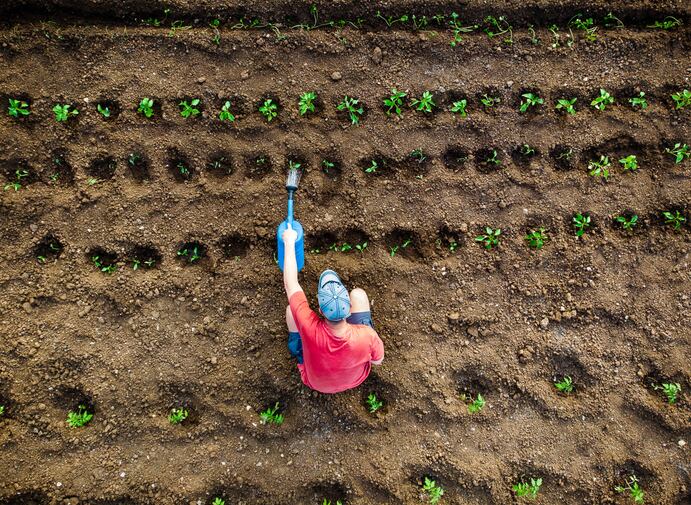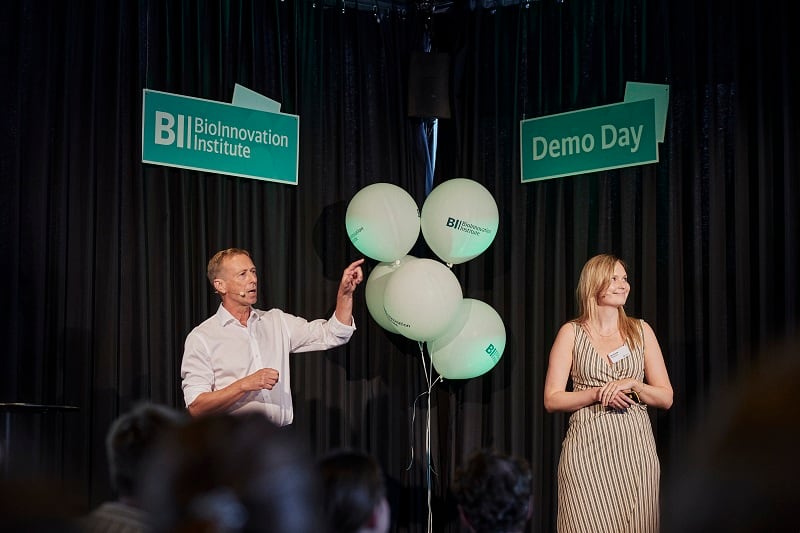It was a talking point at the recent World Agri-Tech Innovation Summit, where the huge emerging market opportunity was highlighted.
“Our biologicals solutions sales line has been doubling year-on-year over the last three years,” said Lavoro CEO Ruy Cunha during a live panel discussion at the event.
Demand is “massively overwhelming”, added Brian Kuehl, who heads crop protection research and development for CHS. “Last year we were pitched 140 different products that were biological based… it’s very hard for us to sort through that.”
But we’ve been here before. This is third time those in sector have been pushed the promise of biologicals, estimated one slightly cynical audience member.
Indeed, “biologicals is one of the most exciting areas in ag in our view,” said Eli Ziskind from investing firm Aqua Capital. “It is the key input responsible, hopefully, for the elimination or massive reduction of synthetic ingredients.” But the failures in this space have so far exceeded the success stories, he said.
So what's different this time?
"The science and the knowledge behind biologicals has advanced considerably," said Agrithority's chief technology officer Gloverson Moro, who has nearly 25 experience of commercialising products.
We've well and truly moved on from the days of bathtub brews, he told AgTechNavigator. There are more products in development, more readily available to farmers, offering good reliability, efficacy, shelf life and yield. "The science behind them is much more sophisticated than it was before."
Agricultural biologicals have blossomed into diverse group of products derived from naturally occurring microorganisms, plant extracts, or other organic matter. Fermentation might be an important process used in their production.
But whatever the category or the key ingredient used, "everything in life has pros and cons," mused Moro.
If using fermentation, for example, innovators might encounter unique equipment or regulatory hurdles. Plant extracts might be easier to work with technically and face a smoother regulatory path. But you might need so much of the plant that creating a product at scale is the challenge.
Do farmers still mistrust biologicals?
Farmer mistrust of biologicals also remains a hurdle, Biotalys CEO Kevin Helash told us. "Over the years I’ve learned that when I talk to farmers, I never lead with the fact that it’s about biologicals because when farmers typically hear ‘biological’ they hear ‘it's expensive and it doesn't work very well’.”
But, like Moro, he stressed that the industry has “evolved tremendously over the last 10 years to where we are today. When I talk to a farmer I talk about efficacy. It definitely has to work. I talk about how it fits into their operation. It has to have a price point and a benefit that makes sense to them, and then I say ‘by the way it has a softer environmental footprint and it's naturally derived etc’. So, for me that's the back end of the story not the front end.”
He is particularly excited by the cross pollination of technology between the pharma and agriculture industries. Biotalys, for example, a spin-out of the Flemish Institute for Biotechnology (VIB) in Belgium, is developing a new class of biological, sustainable crop protection products, making use of a cutting-edge technology platform based on llama antibodies.
The need for new modes of action around fungicides and insecticides is becoming more urgent as pests develop resistance to existing products on the marketplace, he said. Concurrently, PAN’s Bans List shows that 162 countries have banned a total of 460 pesticide active ingredients or groups of actives, for example. The US is currently using 72 pesticides that are currently or set to be banned in EU. "We are not bringing on new products to the market that can offset the numbers that are either not effective or being restricted,” said Helash.
"When farmers typically hear biological they hear 'it's expensive and it doesn't work very well’" Biotalys CEO Kevin Helash
"Weeds continue to adapt and are now developing resistance to multiple herbicides at an alarming rate," concurred Daniel Pepitone, co-founder and chief operating officer at Harpe Bioherbicide. "Fewer, less effective weed control options mean reduced yields, increased costs and more pressure on farmer viability."
Harpe is also cross-pollinating pharma technology by tapping into mint plants for a new non-selective herbicide solution against resistant weeds. The natural extracts found in mint have long been used in mouthwashes and mentholated topical ointments, for example. “Inside mint is menthol and terpenes that when formulated become the herbicide,” he explained to AgTechNavigator. “It's a new mode of action that is the same as synthetic chemistry in how it works. These compounds just happen to come from nature versus a lab.”
We are at a “tipping where” where a non-synthetic world appears possible thanks to biologicals innovation, Pepitone said.
However, Gloverson Moro told us he doesn't expect biologicals to completely displace synthetic ingredients. But one innovation might. "If there is one technology that has the potential of displacing chemistry it is RNAi,” he said.
RNAi technology uses double-stranded RNA (dsRNA) molecules to effectively silence defective and undesirable genes that affect the economic traits of crops, leading to improvements in crop varieties.
Again, it's not challenge free, said Moro. Pests can still potentially develop resistance to RNAi over time, for example, while regulatory frameworks for approving and overseeing RNAi pesticides are still being developed. “It is a concept that isn't quite there yet but there are a lot of positives.”





